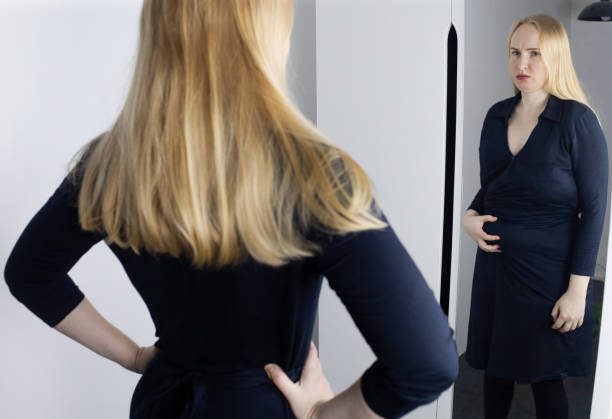This content is for informational and educational purposes only. Always consult a qualified healthcare provider.
Last Updated on April 19, 2024 by Grace Oluchi
Body Dysmorphic Disorder is when you’re super worried about how you look. You might think you have problems with your looks that others can’t see. This can make you feel really down and stop you from doing things you love.
Anyone can get BDD, and it’s more common than you think. It can also happen alongside other mental health issues.


Listen To This Article.
📋 Table of Contents
The Key Takeaway.
Look, you didn’t make yourself. Tt’s okay to ask for help and know that you’re not alone in this. You’re beautiful just the way you are!
What Causes Body Dysmorphic Disorder (BDD)?
Well, I’m not sure what causes BDD, but it could be a mix of things like:
- Genes: If someone in your family has BDD, you might be more likely to get it.
- Brain stuff: There might be parts of your brain that make you see or think about your looks in a not-so-great way.
- Personality: If you’re a perfectionist, super critical of yourself, or if you’ve been bullied, you might be more likely to get BDD.
- Society and media: Sometimes, the pressure to look a certain way can make you feel bad about yourself.
What are the symptoms of Body Dysmorphic Disorder (BDD)?
- You’re super worried about a part of your body you think is flawed.
- You spend a lot of time trying to hide or change how you look.
- You constantly ask others what they think about your looks.
- You compare your looks to others and feel worse if you think you don’t measure up.
- You avoid situations where people might see the parts of your body you’re worried about.
How is Body Dysmorphic Disorder (BDD) Diagnosed?
A lot of people with BDD don’t ask for help because they’re embarrassed. If you think you might have BDD, it’s a good idea to talk to a mental health expert like a psychologist or psychiatrist, who can check well and tell if you have BDD.
How is Body Dysmorphic Disorder (BDD) Treated?
BDD can be treated with therapy and medicine. Cognitive Behavioral Therapy (CBT) is a type of therapy that can help you change the way you think about your looks. Antidepressants can also help with the symptoms of BDD.
How to Cope with Body Dysmorphic Disorder (BDD)?
There are things you can do to help yourself feel better:
- Learn more about BDD.
- Reach out to others for support.
- Take care of your physical, mental, and emotional health.
- Challenge your negative thoughts about your looks.
- Try to reduce behaviors related to your appearance.

